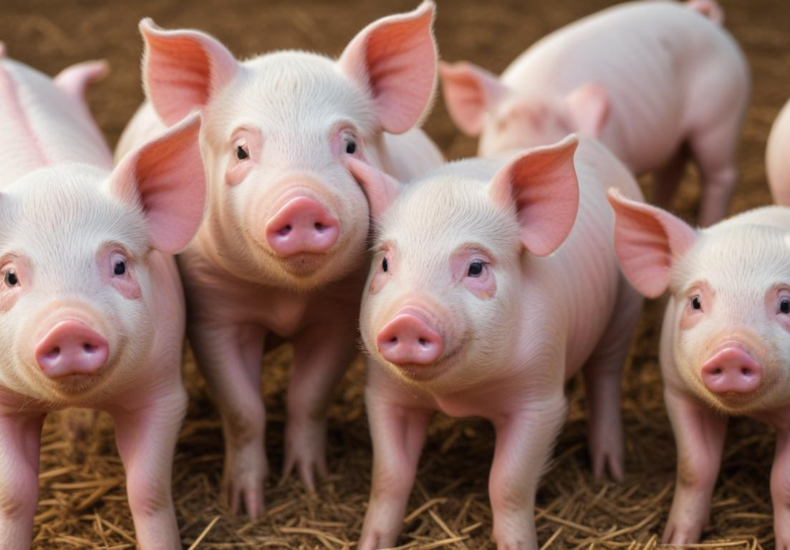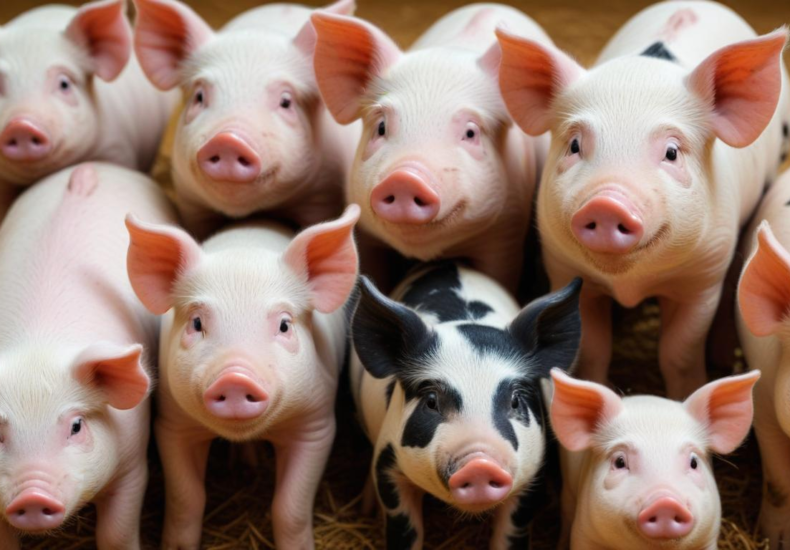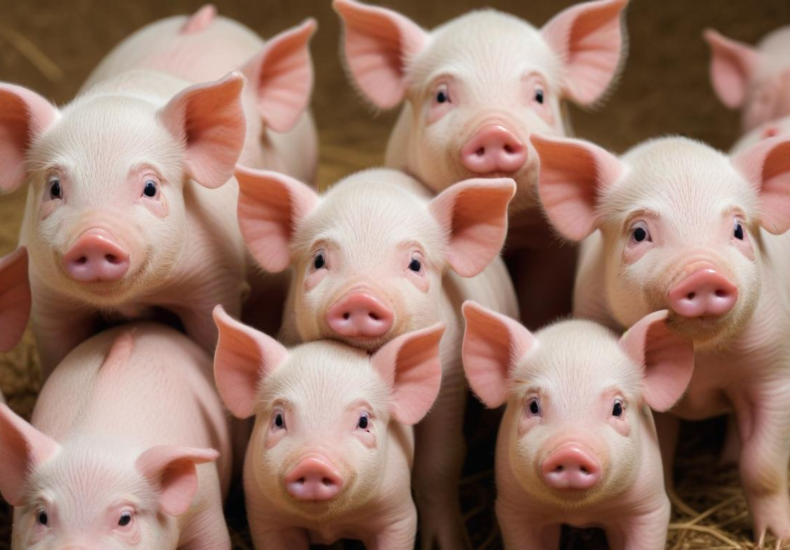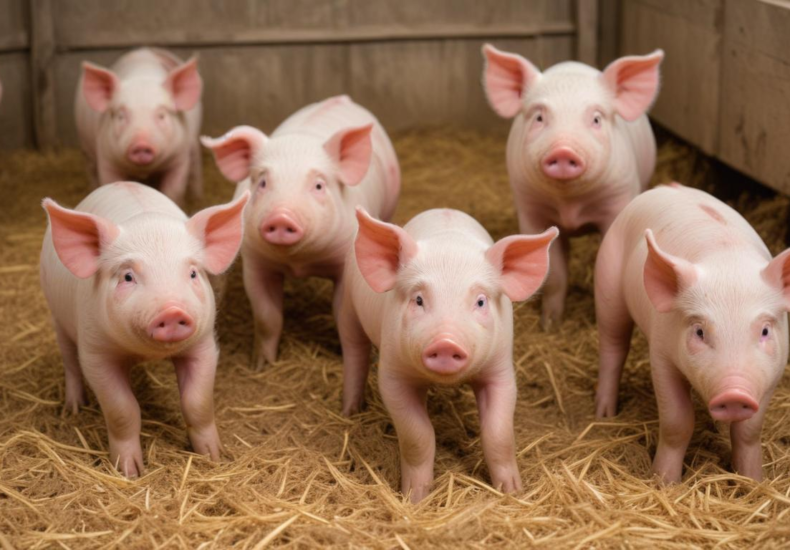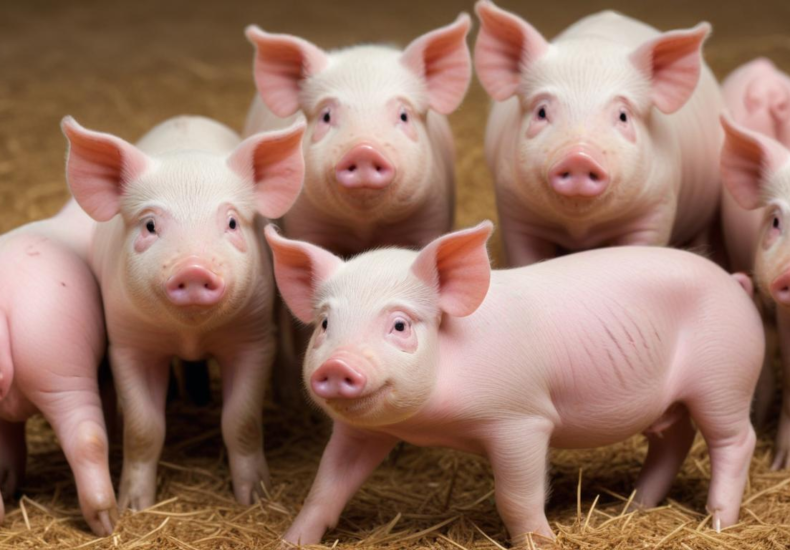Tag: traits
what determines pig coat color genetically
The coat color of pigs is shaped by a complex interplay of genetic factors, involving multiple genes and their interactions. Traits like dominance and recessiveness play a crucial role in inheritance, influencing the colors and patterns seen across breeds. Environmental elements such as sunlight, temperature, and nutrition further impact how these genetic traits manifest. Understanding these dynamics is essential for breeders aiming to achieve specific aesthetic goals while ensuring overall health and diversity in pig populations. Discover the intricate mechanisms behind the vibrant spectrum of pig coat colors.
common inherited traits in pigs
Pigs showcase a fascinating array of inherited traits shaped by genetics and selective breeding. From diverse coat colors to physical characteristics suited for meat production, these traits reflect the careful choices of breeders. Behavioral aspects and health predispositions also play a pivotal role, influencing how different breeds interact with their environment. Delving into the genetic factors at play reveals the complexities of pig breeding, raising important questions about the balance between productivity, adaptability, and animal welfare. Discover how these dynamics continue to evolve within the livestock industry.
the genetic makeup of different pig breeds
The genetic diversity among pig breeds plays a crucial role in their adaptability and overall performance. Each breed exhibits unique traits influenced by specific genetic variations, affecting characteristics such as growth rate, disease resistance, and reproductive success. With modern advancements in genomics and breeding techniques, there is a growing emphasis on maintaining this diversity while addressing production demands. The intricate balance between traditional practices and innovative technologies is key to ensuring sustainable pig breeding that can thrive under changing environmental and market conditions. Discover the fascinating intersection of genetics and agriculture.
genotype and phenotype interactions in pigs
The relationship between genotype and phenotype in pigs is crucial for breeding and improving traits like growth rate and disease resistance. Key factors such as heritability, polygenic traits, and environmental influences play significant roles in how genetic makeup impacts observable characteristics. As researchers integrate genomic technologies and data analytics, the potential for enhancing pig genetics and ensuring animal welfare continues to grow. Understanding these dynamics will shape future breeding strategies and optimize productivity in the swine industry.
genetic traits passed from pigs to piglets
Genetic inheritance in pigs plays a critical role in shaping the traits passed from parents to piglets. This intricate process combines genetic material from both the mother and father, influencing attributes ranging from coat color to growth rates. Both autosomal inheritance and environmental factors, such as nutrition and housing, further complicate trait expression. Moreover, advances in selective breeding leverage these genetic principles to enhance desired characteristics in pig populations, offering insights into the future of swine genetics and livestock improvement. What other surprises lie within the genetics of these fascinating animals?
heritability estimates for pig reproductive traits
Understanding the heritability of reproductive traits in pigs is essential for advancing breeding strategies and improving efficiency in swine production. Key traits such as litter size and age at first service exhibit varied heritability estimates influenced by genetic and environmental factors. Recent advancements, including genomic selection, offer new possibilities for identifying specific genes and optimizing breeding practices. As breeders navigate the interplay between genetics and management, the potential for enhancing herd productivity and sustainability becomes increasingly promising. Discover the intricacies that can transform swine breeding and production in the modern agricultural landscape.
why some pigs grow faster genetically
Genetic factors are crucial in shaping pig growth rates, directly affecting productivity and efficiency in livestock production. Traits such as average daily gain, feed conversion ratio, and body composition are influenced by genetics, enabling breeders to select for faster-growing pigs. With the advent of genomic selection and advanced breeding techniques, including CRISPR-Cas9 gene editing, farmers can enhance desired traits. As the industry embraces data-driven approaches and sustainability, the future of pig farming looks poised for significant advancements in growth performance and animal welfare.
how piglet traits are determined by genetic makeup
The complex interplay of genetics and environmental factors shapes the traits of piglets, influencing their development and overall health. Key concepts include polygenic traits, heritability, and the role of specific genes in characteristics like coat color and muscle growth. As research advances, innovative breeding strategies—such as genomic selection and gene editing—are being explored to enhance desirable traits, optimize production, and improve animal welfare. Understanding these dynamics is crucial for progressing pig farming practices and achieving sustainable outcomes in the industry.
Archives
Calendar
| M | T | W | T | F | S | S |
|---|---|---|---|---|---|---|
| 1 | ||||||
| 2 | 3 | 4 | 5 | 6 | 7 | 8 |
| 9 | 10 | 11 | 12 | 13 | 14 | 15 |
| 16 | 17 | 18 | 19 | 20 | 21 | 22 |
| 23 | 24 | 25 | 26 | 27 | 28 | |

